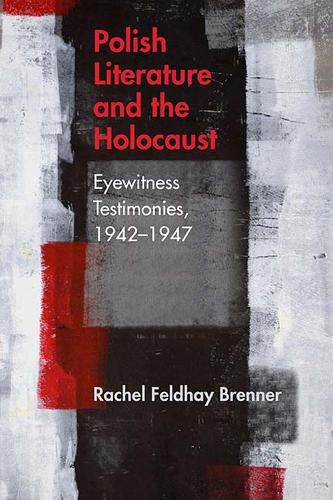Readings Newsletter
Become a Readings Member to make your shopping experience even easier.
Sign in or sign up for free!
You’re not far away from qualifying for FREE standard shipping within Australia
You’ve qualified for FREE standard shipping within Australia
The cart is loading…






In this pathbreaking study of responses to the Holocaust in wartime and postwar Polish literature, Rachel Feldhay Brenner explores seven writers’ compulsive need to share their traumatic experience of witness with the world. The Holocaust put the ideological convictions of Kornel Filipowicz, Jozef Mackiewicz, Tadeusz Borowski, Zofia Kossak, Leopold Buczkowski, Jerzy Andrzejewski, and Stefan Otwinowski to the ultimate test. Tragically, witnessing the horror of the Holocaust implied complicity with the perpetrator and produced an existential crisis that these writers, who were all exempted from the genocide thanks to their non-Jewish identities, struggled to resolve in literary form.
Poland and the Holocaust: Literary Testimonies, 1942-1947 is a particularly timely book in view of the continuing debates about the attitudes of Poles toward the Jews during the war. The literary voices from the past that Brenner examines posit questions that are as pertinent now as they were then. And so, while this book speaks to readers who are interested in literary responses to the Holocaust, it also illuminates the universal issue of the responsibility of witnesses toward the victims of any atrocity.
$9.00 standard shipping within Australia
FREE standard shipping within Australia for orders over $100.00
Express & International shipping calculated at checkout
In this pathbreaking study of responses to the Holocaust in wartime and postwar Polish literature, Rachel Feldhay Brenner explores seven writers’ compulsive need to share their traumatic experience of witness with the world. The Holocaust put the ideological convictions of Kornel Filipowicz, Jozef Mackiewicz, Tadeusz Borowski, Zofia Kossak, Leopold Buczkowski, Jerzy Andrzejewski, and Stefan Otwinowski to the ultimate test. Tragically, witnessing the horror of the Holocaust implied complicity with the perpetrator and produced an existential crisis that these writers, who were all exempted from the genocide thanks to their non-Jewish identities, struggled to resolve in literary form.
Poland and the Holocaust: Literary Testimonies, 1942-1947 is a particularly timely book in view of the continuing debates about the attitudes of Poles toward the Jews during the war. The literary voices from the past that Brenner examines posit questions that are as pertinent now as they were then. And so, while this book speaks to readers who are interested in literary responses to the Holocaust, it also illuminates the universal issue of the responsibility of witnesses toward the victims of any atrocity.